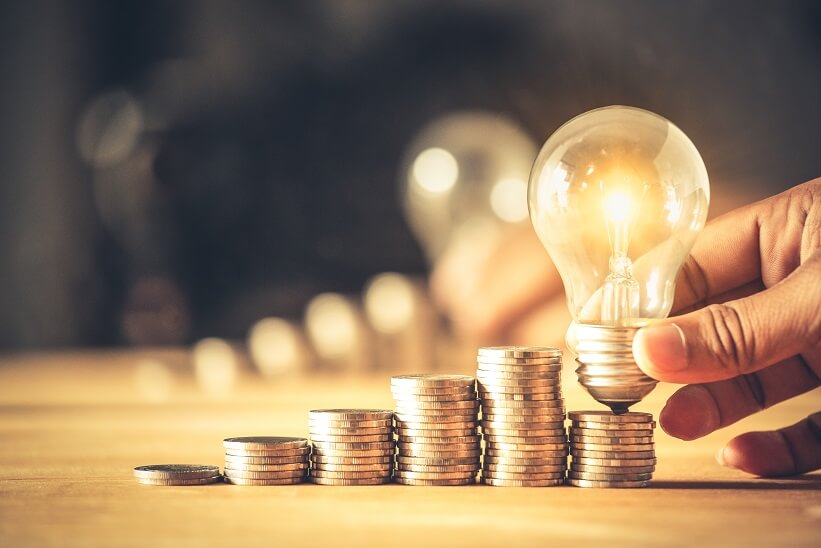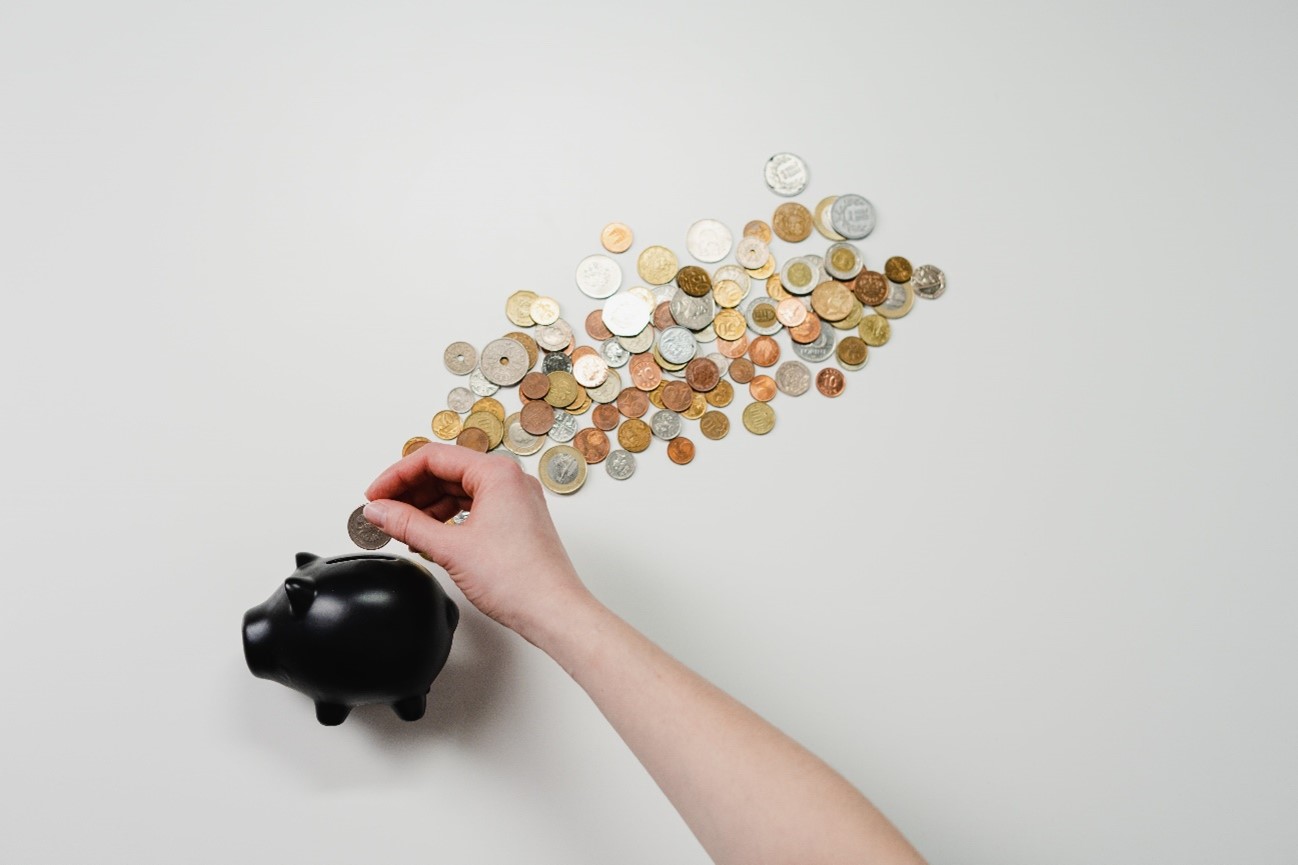
Como economizar energia
Entenda como a eficiência energética ajuda o meio ambiente e reduz a sua conta de luz, e confira dicas da Neoenergia para economia de energia no dia a dia.
Eficiência Energética: dicas para economizar energia
Refletir sobre o consumo de energia é o primeiro passo para garantir um futuro de qualidade para as próximas gerações. Diante dos desafios ambientais e climáticos enfrentados ao redor do mundo, a adoção de práticas de eficiência energética se torna cada vez mais essencial para minimizar os impactos associados à geração de energia.
O que é eficiência energética?
O termo “eficiência energética” significa realizar o mesmo trabalho ou serviço com menor consumo de energia. Isso pode envolver a adoção de tecnologias, práticas conscientes e a implementação de medidas que reduzam o desperdício. Um exemplo prático que ajuda a entender: uma lâmpada fluorescente de 15W emite a mesma luminosidade que uma lâmpada LED de 8W.Selos e etiquetas de eficiência energética
Os consumidores podem identificar produtos com menor consumo de energia através do Selo Procel, do Programa Nacional de Conservação de Energia Elétrica, e acompanhar as características de desempenho energético de dispositivos, como chuveiros elétricos e refrigeradores, através da Etiqueta Nacional de Conservação de Energia (ENCE), que faz parte do Programa Brasileiro de Etiquetagem (PBE) e tem regras definidas pelo Instituto Nacional de Metrologia, Qualidade e Tecnologia (Inmetro).
Essa etiqueta define classes de consumo em letras e cores, que vão desde as verdes com a letra A (mais eficiente), até as vermelhas com a letra F (menos eficiente). Esse valor representa o Coeficiente de Eficiência Energética (CEE), que avalia a produção em relação ao consumo de eletricidade e ajuda na hora da compra de algum equipamento mais econômico.
Por que economizar energia?
Embora empresas do setor elétrico já invistam em fontes mais limpas e sustentáveis, uma parte da energia do país ainda é gerada através de combustíveis fósseis, que emitem gases de efeito estufa e intensificam as mudanças climáticas. Ao aumentar o consumo de energia, mais poluentes são liberados, intensificando os prejuízos ao meio ambiente.
O uso mais eficiente da energia não apenas reduz a dependência de recursos naturais, mas também diminui as emissões desses gases, contribuindo para o processo de descarbonização. Por isso, é importante que os consumidores também participem dessa mudança de hábito, monitorem e controlem seus próprios gastos energéticos.
Além dos benefícios ambientais, a adoção de práticas de eficiência energética reflete positivamente no orçamento mensal, já que os valores das contas de luz ficam mais acessíveis.

Como calcular o valor do consumo mensal de energia?
Calcular o valor mensal de gastos com energia é importante para promover o consumo consciente e gerenciar as finanças de forma responsável. Essa conta permite que os consumidores compreendam melhor seus padrões e tomem medidas para otimizar a eficiência energética em suas residências ou empresas.
Todo mês é feita a leitura do medidor de energia para saber qual o consumo em kWh. O gasto mensal é calculado pela diferença entre a leitura do mês atual e a leitura do mês anterior. Ele é listado no campo “Demonstrativo de Consumo desta Nota Fiscal”, na conta de energia do consumidor.
Como é feito o cálculo do valor cobrado na fatura de energia?
O valor da tarifa de energia elétrica é determinado pela ANEEL - Agência Nacional de Energia Elétrica. O valor cobrado pelo consumo mensal é calculado multiplicando o valor do consumo no mês pelo valor da Tarifa de Energia com impostos. O total de impostos cobrado é listado no final da fatura no campo “Informações de Tributos”, nos itens ICMS, PIS e COFINS.
Bandeiras tarifárias de energia
As bandeiras tarifárias de energia são utilizadas pelo setor elétrico para sinalizar aos consumidores as condições de geração de energia e os custos associados a esse processo nas faturas mensais.
Grande parte da energia elétrica consumida pelos brasileiros tem origem nas hidrelétricas. Porém, em épocas de pouca chuva, os níveis dos reservatórios ficam abaixo do esperado e é preciso acionar outras fontes de energia, como as termelétricas movidas a petróleo ou carvão, cujo custo de geração é mais caro. É nesse momento que aparecem as bandeiras tarifárias na conta de luz.
Verde
As condições de geração de energia estão boas. O consumidor continua pagando o valor médio que está acostumado, o que não significa que deva parar de economizar.Amarelo
As condições de geração de energia ficaram um pouco mais difíceis, o que significa que a conta já virá com um pequeno acréscimo. Hora de o consumidor ficar ainda mais atento ao consumo.
Vermelha
Patamar 1: As condições de geração de energia pioraram e a conta virá maior. O consumidor deve se preocupar em combater o desperdício de energia.
Patamar 2: As condições de geração de energia ficaram mais complicadas. Ainda que não haja risco de desabastecimento, isso refletirá na conta. É necessária uma força tarefa, e o consumidor pode, inclusive, ensinar a família e amigos a economizar.
Patamar 2: As condições de geração de energia ficaram mais complicadas. Ainda que não haja risco de desabastecimento, isso refletirá na conta. É necessária uma força tarefa, e o consumidor pode, inclusive, ensinar a família e amigos a economizar.
Dicas de como economizar energia
Simples práticas de economia de energia, como o uso de lâmpadas de LED ou a compra de eletrodomésticos mais eficientes, por exemplo, desempenham um papel importante na preservação do meio ambiente e fazem diferença no valor das contas de luz. Confira algumas dicas que podem ser aplicadas no dia a dia:
Iluminação
- Substituir lâmpadas halógenas e fluorescentes por lâmpadas LED. O custo inicial será compensado com a economia de energia.
- Apagar as lâmpadas que não estiverem sendo utilizadas, menos aquelas que contribuem para a segurança.
- Pintar as paredes e tetos com cores claras. Além de refletirem melhor a luz natural, reduzem o consumo com a iluminação artificial.
- Evitar acender lâmpadas durante o dia, abrir a janela e aproveitar ao máximo a luz natural.
Geladeira
- Não secar roupas atrás da geladeira. Além de sobrecarregar o aparelho e gerar risco de choque, isso aumenta o consumo de energia.
- Verificar sempre o estado das borrachas de vedação da geladeira e evitar o desperdício de energia.
- Descongelar a geladeira e limpar com frequência.
- Regular o termostato adequadamente de acordo com a estação do ano.
- Colocar a geladeira em local ventilado, afastada da parede, dos raios solares, fogões e estufas.
- Ao comprar, escolher equipamentos com Selo Procel ou com classificação A do Inmetro.
- Cuidar bem da geladeira: não abrir a porta a todo o momento, não forrar as prateleiras e nem guardar alimentos quentes.
Ferro de Passar
- Usar a temperatura indicada para cada tipo de tecido.
- Desligar o ferro quando interromper o serviço, assim a energia é poupada e evita-se o risco de acidentes.
- Passar roupas leves com o aparelho desligado, o calor do ferro pode ser aproveitado.
- Avaliar a real necessidade de passar algumas peças e só passar as necessárias.
- Escolher roupas com tecidos que não precisem ser passadas.
- Escolher o ferro com menor potência.
Máquina de Lavar Roupas
- Procurar lavar o máximo de roupas possível de uma só vez.
- Utilizar a dosagem de sabão adequada para cada quantidade de roupa.
- Manter o filtro da máquina sempre limpo, para que não seja necessário que repetir a operação “enxaguar". Sempre utilizar o ciclo mais adequado para as lavagens.
- Escolher máquinas com Selo Procel ou classificação A do Inmetro.
Ar-condicionado
- Escolher corretamente o equipamento para o tamanho do ambiente.
- Manter os filtros limpos.
- Regular adequadamente a temperatura.
- Ao ligar o aparelho, manter janelas e portas fechadas.
- Os aparelhos instalados na área externa devem ter proteção contra os raios solares e é preciso cuidado para não bloquear a ventilação.
- Desligar o aparelho quando o ambiente estiver desocupado.
Chuveiro elétrico
- Evitar banhos demorados.
- Fechar a torneira enquanto se ensaboa.
- Sempre que possível, ajustar a temperatura para a posição “Verão”, pois na posição “Inverno” o consumo pode ser 30% maior.
- Não mudar a temperatura durante o banho, evitando assim risco de choque.
- Dar preferência aos sistemas solares para aquecimento de água - eles são mais econômicos e ainda ajudam a preservar o meio ambiente.
- Não reaproveitar resistências queimadas: isso provoca aumento do consumo e provoca riscos.
Televisão
- Não deixar a TV ligada sem necessidade;
- Não dormir com a TV ligada, utilizar o recurso de programação “timer”.
- Ficar alerta quando usar o modo “stand by”, pois alguns equipamentos como impressora, computador, TV, aparelho de som, telefone sem fio, modem de internet e receptor de TV a cabo/satélite consomem energia, mesmo quando desligados. Se os recursos de programação não estiverem sendo utilizados, desligá-los da tomada.
Computador
- Usar notebook é mais econômico.
- Sempre que possível, após 20 minutos sem usá-lo, colocá-lo para “dormir” ou “hibernar”.
- Desligar o computador da tomada quando não estiver sendo utilizado.
